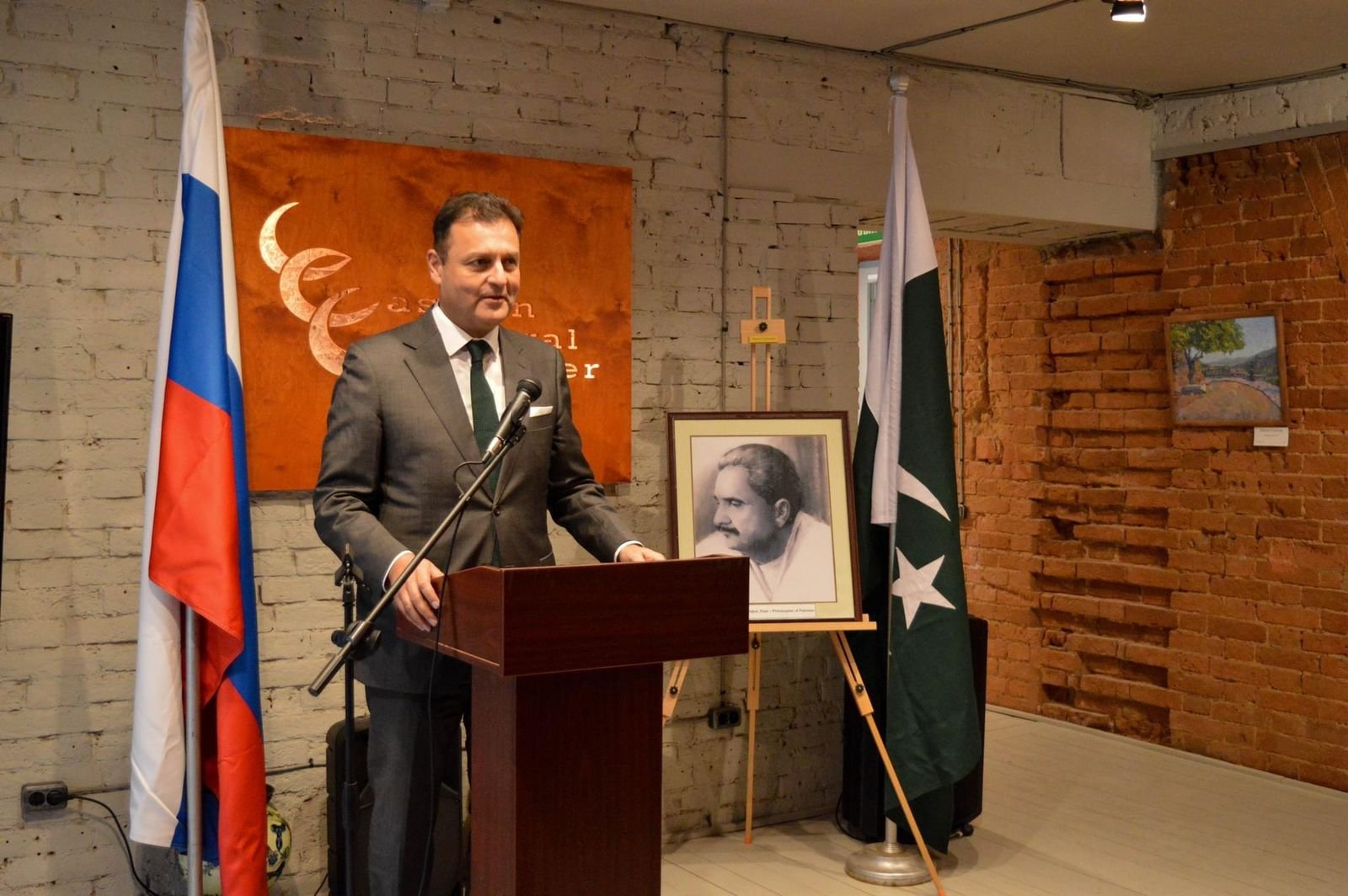Moscow, 27 September 2022 (TDI): A ceremony to introduce an Encyclopedia of Iqbal was conducted at the Eastern Cultural Centre, Institute of Oriental Studies under the Russian Academy of Sciences on September 26, 2022.
Moreover, While discussing bilateral relations between the two countries, Ambassador Shafqat Ali Khan expressed satisfaction that the trajectory of progress is not only favorable but also continuous, regardless of government changes.
Pakistani Ambassador to Russia, Shafqat Ali Khan claimed that “Iqbal beats in the hearts of all Pakistanis” in his inaugural speech at the ceremony.
He reiterated that “humanism, passion for justice, striving for a new world based on justice and fairness makes Iqbal a part of the collective ownership of the entire humanity.”

He also lectured on several areas of Pakistan’s foreign and defense strategy, stressing the significance of resolving the Kashmir issue for regional peace and security.
Senator Walid Iqbal, Chairman of the Senate Standing Committee on Human Rights and the grandson of the renowned poet, presented the three-volume Urdu Encyclopedia at the event.
Scholars from the Academy of Sciences’ Institute of Oriental Studies, as well as other significant institutions and think tanks, along with Pakistani officials, attended the occasion.
Allama Muhammad Iqbal
Muhammad Iqbal was a Muslim poet and philosopher aka Allama Iqbal Pakistan’s national poet. As a poet, he enjoys great repute in the world.
Allama Iqbal wrote Urdu and Persian poetry. His poetry is regarded as revolutionary. His vision of an independent state for the Muslims of British India served as the impetus for the establishment of Pakistan.
As a poet and philosopher, he was always concerned about the views, ideas, and conditions of Muslims around the world, particularly Indian Muslims who were subject to British rule and also threatened by the Brahman ruling population.
Also Read: “Sitara-e-Sharq” exhibition depicting Iqbal’s poetry held in Kazakhstan
Iqbal was a firm believer in Sir Syed Ahmed Khan’s earlier ‘Two Nation Theory,’ which held that Muslims and Hindus were two distinct nations that should be permitted to coexist.
In 1930, he repeated this theme in his renowned Allahabad Address to the Muslim League, and he also preached it in his poetry and lectures.
Allama Iqbal’s speech and beliefs inspired many Muslims, some of whom went on to become leaders of the Muslim League and later fought for Pakistan. He was also quite popular among the Muslim masses.
As an influential poet for Muslims in the Sub-continent his ideological poetry is still a source of inspiration for many.






